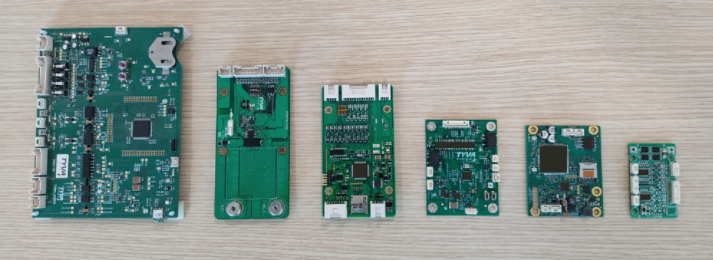Today we mainly introduce BMS, An important component of lithium battery, and its main functions:
Overvoltage protection
The lithium chemical composition of lithium iron phosphate batteries makes them highly sensitive to overvoltages, but LiFePO4 batteries have a higher tolerance. Similarly, the cathode material may oxidize, become less stable, and produce carbon dioxide, which may lead to a buildup of pressure in the cell.
Undervoltage protection
Under voltage during battery, discharge is also a problem, as discharging LiFePO4 cells below about 2.0V may cause electrode material breakdown. If the voltage of any cell drops below 2.0V, the battery’s BMS acts as a fail-safe to disconnect the battery from the circuit.
Over-current protection
For safe use of lithium-ion batteries, each battery has a maximum specified current. If the load directs a higher current to the battery, it may cause the battery to overheat. It is important to use the battery in a way that keeps the current consumption below the maximum specification, and the BMS plays a vital role in this case by disconnecting the battery from the circuit.
Short circuit protection
Battery short circuit is the most serious condition that can happen when a battery is in operation. The most common condition is when the electrode accidentally attaches to a piece of metal. The BMS must quickly detect a short circuit, and then the sudden surge of current can overheat the battery and cause catastrophic damage. This is not what we want to see if an accident occurs that results in injuries to people and damage to equipment.
Too hot
Lithium-iron phosphate batteries can operate safely and efficiently at temperatures up to 60 ° C or higher. However, at higher operating and storage temperatures (as with all batteries), the electrode material will begin to degrade. The battery management system (BMS) for lithium-ion batteries uses an embedded thermistor to monitor the temperature during operation, and it will disconnect the battery from the circuit at the specified temperature.
Lithium-iron phosphate batteries consist of more than just individual cells connected together. They also include battery management systems (BMS), which are usually not visible to the end user, to ensure that each cell in the battery is kept within a safe range. All LifePO4 batteries need to include an internal or external LiFePO4 batteries BMS to protect, control and monitor the battery to ensure safety and maximize service life across the entire range of operating conditions.
Post time: Apr-07-2022


